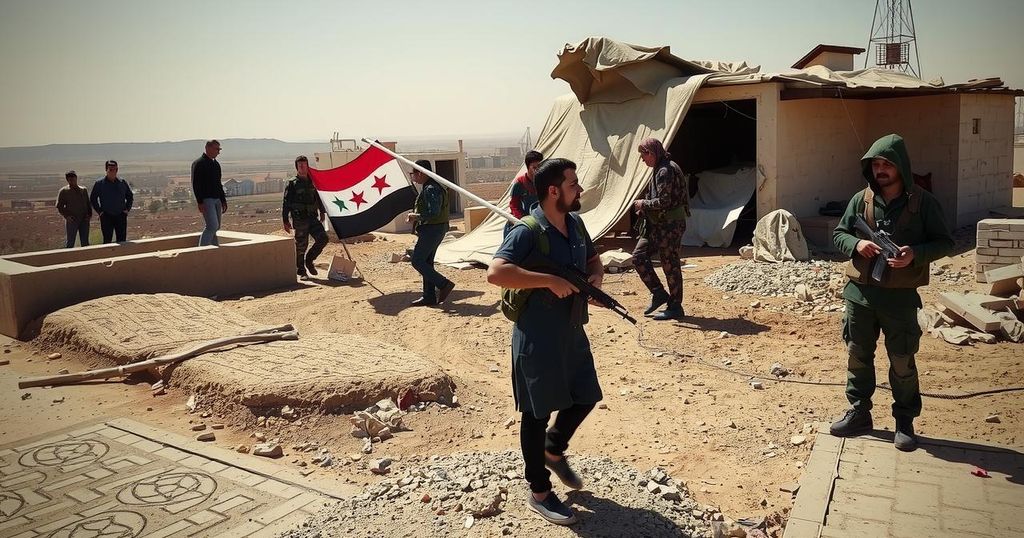Kurds in Syria Seek Action from Israel Amid Security Fears
Kurds in Syria, facing threats from Turkey, hope for Israel’s concrete support as they confront historical aggression and ongoing military attacks by the Syrian National Army. Calls for assistance have intensified amidst fears of renewed offensives on Kurdish-controlled areas.
Recent discussions have highlighted the precarious position of the Kurdish minority in Syria, particularly in light of potential military actions from Turkey. Israeli Foreign Minister Gideon Sa’ar’s comments regarding the international community’s role in protecting minorities point to an urgency among the Kurdish population for actionable support beyond mere rhetoric. The fear among Kurds stems from historical precedents, notably Turkey’s past military operations, such as the 2018 Afrin offensive, resulting in mass displacement and violence against Kurdish communities.
Currently, eastern Syria is predominantly under the control of the Autonomous Administration of North and East Syria (AANES) and its military arm, the Syrian Democratic Forces (SDF), which has effectively combated ISIS with U.S. support. However, Turkey views the SDF as a terrorist entity, often resorting to violence through the Syrian National Army (SNA), which has been implicated in numerous human rights abuses.
Kurds have expressed deep concerns regarding security threats from Turkish forces and their affiliates, especially as cities like Kobani face potential assaults. Many are actively questioning Israel’s commitment to provide tangible support. Calls for aerial assistance have surfaced amid fears that external forces, including Turkey and Qatar, may further destabilize the region while sustaining their backing of militant groups.
The backdrop of ongoing military confrontations complicates the situation, with Turkish drones targeting SDF positions and previously liberated cities now facing SNA harassment. Despite some hopeful indications of quiet cooperation between Israel and Kurdish forces, the overarching question remains: will Israel translate its supportive rhetoric into concrete action to safeguard the Kurdish population against aggression?
As the Kurdish towns brace for potential attacks, the need for effective engagement and strategic alliances becomes increasingly critical. The historical relationship and geopolitical dynamics involving the Kurdish, Turkish, and Israeli entities in the region forecast an uncertain yet pivotal chapter in the quest for Kurdish autonomy and safety.
The struggle for Kurdish autonomy in Syria has been exacerbated by regional tensions and historical conflicts, especially given Turkey’s aggressive approach towards Kurdish populations. The Kurdish community, particularly the SDF, has played a crucial role in combating ISIS, yet faces significant threats from Turkey, which perceives the SDF as linked to the PKK, a designated terrorist organization. The Kurds’ hopes for international support, particularly from Israel, rise amid fears of renewed aggression in a geopolitical landscape that has shifted considerably in the absence of Iranian and Russian influence in Syria.
In summary, the Kurdish minority in Syria finds itself in a dire situation, confronting continued military threats primarily from Turkey and its affiliated groups. Despite having demonstrated political and military effectiveness in combating ISIS, their future remains precarious without adequate international support. The Kurdish calls for tangible assistance, particularly from Israel, highlight their urgent need for protection and stability amidst ongoing and escalating conflicts in the region.
Original Source: www.jpost.com




Post Comment